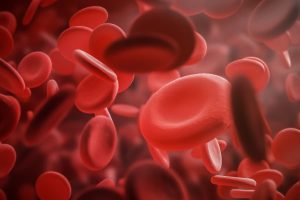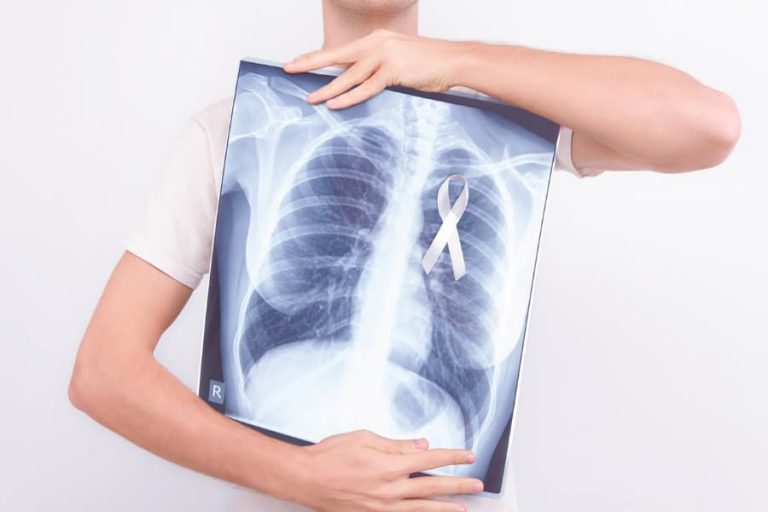
If I Am Referred to a Hematologist, Do I Have Cancer?
A hematologist is a medical specialist who diagnoses and treats cancerous and non-cancerous blood disorders. Though being referred to one may feel frightening, people should
HIPAA Alert: Potential Data Breach Learn More
Questions on Oncology, Hematology and/or Infusion Clinical Services due to COVID-19 Crisis – CALL 833-698-1623
Important Information for Our Patients Regarding the Coronavirus.
RCCA Providing Area Cancer Patients with Access to Care During Coronavirus Outbreak
RCCA Offering Patients Virtual Visits During Coronavirus Pandemic
Although small cell lung cancer (SCLC) is less common than non-small cell lung cancer (NSCLC), it spreads much faster than the latter. Furthermore, small cell lung cancer that has spread often is incurable. Early detection of the disease allows for early treatment and — ultimately — a greater chance of survival.
At Regional Cancer Care Associates, cancer and blood disorder specialists provide comprehensive and compassionate care for a host of conditions, including SCLC. Patients in New Jersey, Connecticut, Maryland, and the Washington, D.C., area rely on these experienced doctors to provide advanced treatment solutions.
Small cell lung cancer presents in two main forms — small cell carcinoma and combined small cell carcinoma. Both originate in lung tissues, but each features distinct malignant cells and appears differently under a microscope, which is how physicians distinguish between the two.
In most cases, SCLC already has metastasized outside the lungs at the time of diagnosis. Additionally, it is more likely than NSCLC to recur, even after treatment.

While doctors use a four-stage system to characterize the nature of many cancers, most use a two-stage categorization for staging small cell lung cancer. Staging is an essential step as it helps determine the prognosis – meaning the likely outcome –of the disease in a specific patient and helps physicians determine the best treatment plan for that person. The two stages of SCLC are:
Approximately 33% of people with small cell lung cancer are at the limited stage when first diagnosed. At this point, cancerous cells are present only in one lung and in nearby lymph nodes. At the limited stage, a doctor may recommend a more aggressive cancer treatment to cure the disease.
The extensive stage means cancer has spread to the other lung, to lymph nodes on the other side of the chest, and to organs in farther areas of the body. Small cell lung cancer may also be categorized as extensive if it has reached the fluid surrounding the lung. Two-thirds of people with SCLC are diagnosed at the extensive stage.
Patients with early-stage small cell lung cancer seldom experience signs of the condition. More often, indicators of the disease emerge as it progresses. Small cell lung cancer symptoms include:
If a doctor suspects that a patient might have small cell lung cancer, he or she will order several tests to confirm the diagnosis. Usually, physicians start with a chest x-ray to identify whether the patient has any suspect spots on the lungs. From there, they may order one or more of the following screenings and tests:
Small cell lung cancer treatment may feature one therapy or multiple interventions, with the treatment regimen determined by factors including the patient’s age, the extent of cancer, preexisting health issues, the likelihood that a treatment will cure the disease, and the side effects of the drugs administered or other form of therapy. Common treatment options include:
Patients in New Jersey, Connecticut, Maryland, and the Washington, D.C., area requiring small cell lung cancer treatment should consider Regional Cancer Care Associates. RCCA’s highly experienced oncologists and hematologists serve patients at 25 community-based care centers across the region, taking a patient-centered approach to treating for various cancer types and blood disorders. Visit one of the locations to learn more about cancer treatment or to schedule an appointment.
If you or a loved one is battling non-Hodgkin lymphoma, you aren’t alone. Our experts at Regional Cancer Care Associates are dedicated to delivering accurate diagnoses and effective treatments. To find out more or make an appointment, get in touch with us at one of our locations throughout Connecticut, Maryland, and New Jersey.

A hematologist is a medical specialist who diagnoses and treats cancerous and non-cancerous blood disorders. Though being referred to one may feel frightening, people should

Routine mammograms have long been a vital part of breast cancer detection. Because most breast cancers do not cause symptoms early on, annual screenings are

Regional Cancer Care Associates (RCCA), one of the nation’s largest networks of oncology specialists, today announced that Hematology Oncology Specialists of Cape Cod (HOSCC) and its three medical oncologists/hematologists will join RCCA.

Regional Cancer Care Associates is one of fewer than 200 medical practices in the country selected to participate in the Oncology Care Model (OCM); a recent Medicare initiative aimed at improving care coordination and access to and quality of care for Medicare beneficiaries undergoing chemotherapy treatment.